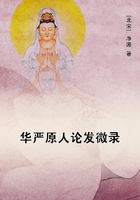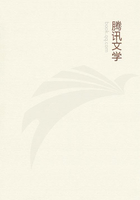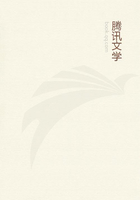All this has a similar drift, for Simonides was not so ignorant as to say that he praised those who did no evil voluntarily, as though there were some who did evil voluntarily. For no wise man, as Ibelieve, will allow that any human being errs voluntarily, or voluntarily does evil and dishonourable actions; but they are very well aware that all who do evil and dishonourable things do them against their will. And Simonides never says that he praises him who does no evil voluntarily; the word "voluntarily" applies to himself.
For he was under the impression that a good man might often compel himself to love and praise another, and to be the friend and approver of another; and that there might be an involuntary love, such as a man might feel to an unnatural father or mother, or country, or the like. Now bad men, when their parents or country have any defects, look on them with malignant joy, and find fault with them and expose and denounce them to others, under the idea that the rest of mankind will be less likely to take themselves to task and accuse them of neglect; and they blame their defects far more than they deserve, in order that the odium which is necessarily incurred by them may be increased: but the good man dissembles his feelings, and constrains himself to praise them; and if they have wronged him and he is angry, he pacifies his anger and is reconciled, and compels himself to love and praise his own flesh and blood. And Simonides, as is probable, considered that he himself had often had to praise and magnify a tyrant or the like, much against his will, and he also wishes to imply to Pittacus that he does not censure him because he is censorious.
For I am satisfied [he says] when a man is neither bad nor very stupid; and when he knows justice (which is the health of states), and is of sound mind, I will find no fault with him, for I am not given to finding fault, and there are innumerable fools(implying that if he delighted in censure he might have abundant opportunity of finding fault).
All things are good with which evil is unmingled.
In these latter words he does not mean to say that all things are good which have no evil in them, as you might say "All things are white which have no black in them," for that would be ridiculous; but he means to say that he accepts and finds no fault with the moderate or intermediate state. He says:
I do not hope to find a perfectly blameless man among those who partake of the fruits of the broad-bosomed earth (if I find him, Iwill send you word); in this sense I praise no man. But he who is moderately good, and does no evil, is good enough for me, who love and approve every one.
(and here observe that he uses a Lesbian word, epainemi [approve], because he is addressing Pittacus,Who love and approve every one voluntarily, who does no evil:
and that the stop should be put after "voluntarily"); "but there are some whom I involuntarily praise and love. And you, Pittacus, Iwould never have blamed, if you had spoken what was moderately good and true; but I do blame you because, putting on the appearance of truth, you are speaking falsely about the highest matters. And this, Isaid, Prodicus and Protagoras, I take to be the meaning of Simonides in this poem.
Hippias said: I think, Socrates, that you have given a very good explanation of the poem; but I have also an excellent interpretation of my own which I will propound to you, if you will allow me.
Nay, Hippias, said Alcibiades; not now, but at some other time. At present we must abide by the compact which was made between Socrates and Protagoras, to the effect that as long as Protagoras is willing to ask, Socrates should answer; or that if he would rather answer, then that Socrates should ask.
I said: I wish Protagoras either to ask or answer as he is inclined;but I would rather have done with poems and odes, if he does not object, and come back to the question about which I was asking you at first, Protagoras, and by your help make an end of that. The talk about the poets seems to me like a commonplace entertainment to which a vulgar company have recourse; who, because they are not able to converse or amuse one another, while they are drinking, with the sound of their own voices and conversation, by reason of their stupidity, raise the price of flute-girls in the market, hiring for a great sum the voice of a flute instead of their own breath, to be the medium of intercourse among them: but where the company are real gentlemen and men of education, you will see no flute-girls, nor dancing-girls, nor harp-girls; and they have no nonsense or games, but are contented with one another's conversation, of which their own voices are the medium, and which they carry on by turns and in an orderly manner, even though they are very liberal in their potations. And a company like this of ours, and men such as we profess to be, do not require the help of another's voice, or of the poets whom you cannot interrogate about meaning of what they are saying;people who cite them declaring, some that the poet has meaning, and others that he has another, and the point which is in dispute can never be decided. This sort of entertainment they decline, and prefer to talk with one another, and put one another to the proof in conversation. And these are the models which I desire that you and Ishould imitate. Leaving the poets, and keeping to ourselves, let us try the mettle of one another and make proof of the truth in conversation. If you have a mind to ask, I am ready to answer; or if you would rather, do you answer, and give me the opportunity of resuming and completing our unfinished argument.













